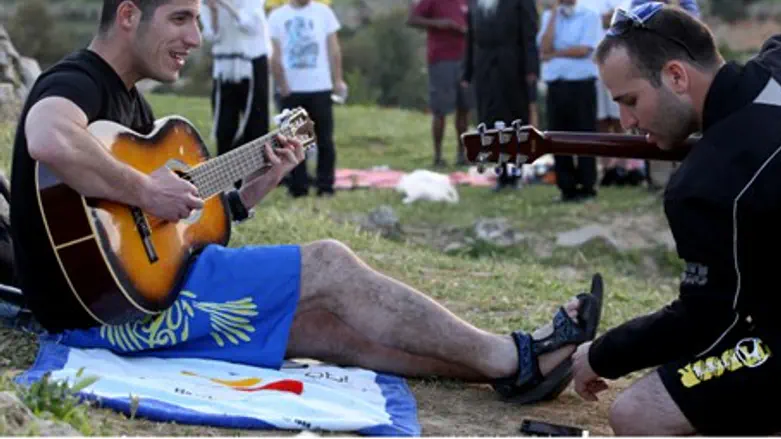
Israel does not have enough organized recreation available to children and youth, says a child welfare expert. A mother in southern Israel bitterly agrees.
Dr. Yitzchak Kadmon, head of the Council for the Welfare of the Child testified Wednesday before the Knesset in connection with recent high-profile crimes, some of which involved teenagers.
"There aren't enough programs which include activities for children and youth,” he said, “and there are not enough care centers and institutions for children in crisis.”
Kadmon's words are substantiated by the bitter experience of a mother in southern Israel, who has requested the family's name not be used due to the sensitivity of the subject. Several months ago, the family's 14-year-old teenager reportedly having been molested by an adult male neighbor. The child only revealed the information six months later the incidents, of which there were allegedly several. The parents immediately sought help.
"I made a call to the Tal Center in Be'er Sheva, at the direction of our HMO clinic, Kupat Holim Leumit,” Rachel* related. “They responded that they had no openings, but when I explained what it was about, they said to come in anyway, which we did. We gave them a lot of information, and also had the school complete a questionnaire, which we returned as requested. There were two interviews, one was with our teenager.
"But the clinic apparently lost the questionnaire -- they called to ask that we send it again – which I refused to do, not knowing where the information would land this time. It was very personal information,” she added. “Then we were told after two appointments and all that information, weeks later, that they had no therapist for us and didn't know when they would. They said it could be six months, maybe ten.”
The family then turned to the Inbal Center, also located in Be'er Sheva and specifically intended to help victims of sexual abuse. But there, too, after numerous phone calls with a social worker, an intake interview and another interview to review records, the parents was told there was a waiting list. The list could be jumped, but only if more records were submitted to prove that the child did not have "psychiatric issues."
The social worker could not commit a therapist to the case without such proof, she told the mother. "I asked her how a psychiatric diagnosis or the lack of it was relevant to the issue of whether my child was sexually assaulted," Rachel* said. "She simply insisted on more information. But we didn't have any."
The bottom line: the child could not be accepted for help without proof that she did not carry a diagnosis of schizophrenia or bipolar disorder, according to what the mother was told. Failing that, and a back-up psychiatrist, the case was rejected. Since the family had no funds for a private psychiatrist, their HMO had no pediatric psychiatrist in the southern region and the adult psychiatrist refused to accept their child for treatment, the family was out of luck.
Predictably, the child's condition eventually deteriorated after having been taken from one clinic to the next. A return visit to the kupat holim, with the mother forcing the adult psychiatrist to see her child led to a referral to the Pediatric Emergency Room at Soroka Medical Center.
The psychiatrist at Soroka simply referred the family back to the Tal Center, which called the family to reiterate they had no therapists available.
To date, the family has received no assistance. "My child is no longer willing to discuss the matter and rejects any attempt to approach it. I can understand why," said Rachel*. "Frankly, after this interview, I won't be willing to discuss it again either."